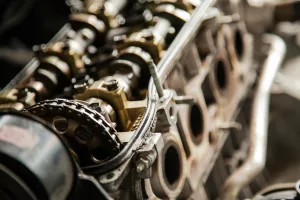When it comes to purchasing a reliable car, two brands often stand out: Toyota and Honda. Both automakers have earned a reputation for producing dependable vehicles that last for years with minimal issues. But which brand is more reliable overall? In this article, we’ll take an in-depth look at the reliability of Toyota and Honda vehicles, comparing their history, consumer reports, repair costs, and key models to help determine which brand comes out on top. Toyota’s Legacy of Reliability Toyota has been synonymous with reliability for decades. The Japanese automaker first gained recognition for its reliability in the 1980s, particularly with models like the Corolla and Camry, which became known for their longevity and low maintenance needs. Toyota’s approach to reliability is rooted in its manufacturing principles, including the famous “Toyota Production System,” which emphasizes continuous improvement (kaizen) and eliminating defects.
The Impact of the Toyota Production System
The Toyota Production System (TPS) isn’t just a set of manufacturing guidelines; it’s a philosophy that has permeated Toyota’s corporate culture. By focusing on efficiency and quality at every stage, Toyota minimizes waste and maximizes output. This system has not only reduced the cost of production but has also ensured that each vehicle is built to last. For example, the meticulous attention to detail in the assembly line helps prevent defects that might not become apparent until many miles down the road.
Real-World Examples of Toyota’s Longevity
Consider the Toyota Camry, a midsize sedan that has become a staple on roads worldwide. Many Camry owners report reaching 300,000 miles or more with proper maintenance—testament to the vehicle’s outstanding durability. For families, the Toyota Sienna minivan offers another example of Toyota’s reliability, often remaining a trusted family vehicle for over a decade.
Honda’s Reliability Journey
Honda also has a strong track record of reliability, beginning with models like the Civic and Accord. Honda’s vehicles are known for being well-engineered, durable, and fuel-efficient. Like Toyota, Honda has consistently ranked highly in reliability surveys and reports. However, while Honda cars have always been praised for their engines and transmission reliability, some areas, such as electronics, have occasionally seen more variability.
Engineering Excellence and Innovation
Honda’s engineering prowess is particularly evident in its engines. The Honda Civic, for example, has long been celebrated for its efficient, reliable powertrains. Despite this, Honda has not been without its challenges. The introduction of turbocharged engines, while providing more power and efficiency, has also brought new issues, such as oil dilution—a problem where fuel mixes with engine oil, leading to potential mechanical issues if not addressed.
Case Study: The Honda Accord
The Honda Accord is a prime example of Honda’s engineering excellence. Known for its performance and reliability, the Accord has maintained a strong presence in the midsize sedan market. However, some older models experienced transmission issues, which Honda addressed in subsequent designs. The company’s proactive stance in rectifying these issues has helped maintain its reputation.
Reliability Rankings and Consumer Reports
J.D. Power and Consumer Reports Data
When assessing vehicle reliability, two major sources of data are J.D. Power’s Vehicle Dependability Study (VDS) and Consumer Reports’ annual reliability rankings.
- J.D. Power: According to the 2023 VDS, Toyota consistently ranks among the top brands for vehicle dependability, often outperforming Honda. Toyota’s Lexus luxury brand also ranks first in many studies. Honda typically ranks above average, though not as high as Toyota.
- Consumer Reports: Consumer Reports’ data is based on surveys from hundreds of thousands of car owners. In recent years, Toyota has been a consistent top performer in these surveys, with multiple models earning top spots for reliability. Honda is usually close behind but has experienced some fluctuations in certain models, particularly in newer vehicle categories like SUVs and hybrids.
Understanding the Data
The data from these studies are not just numbers—they tell a story of how owners experience their vehicles over time. For example, while Toyota may rank higher in dependability, Honda’s strength in certain categories, such as fuel efficiency and driving dynamics, often make it a preferred choice for specific consumer segments.
Long-Term Reliability
Both Toyota and Honda vehicles are known for their ability to run well beyond 200,000 miles with proper maintenance. However, Toyota tends to have a slight edge in long-term reliability. Models like the Toyota Tacoma, Corolla, and Camry often see higher mileage with fewer major repairs than their Honda counterparts.
Extending Vehicle Life
Owners of both brands can maximize their vehicle’s lifespan with regular maintenance. Simple practices such as timely oil changes, tire rotations, and brake inspections can prevent costly repairs down the line. Toyota’s conservative engineering choices often mean fewer complications, making them slightly more forgiving when maintenance schedules are less rigidly followed.
Cost of Ownership and Repairs
Repair Costs
One important aspect of reliability is the cost and frequency of repairs. On average, Toyota vehicles tend to have slightly lower repair costs than Honda vehicles. According to data from RepairPal:
- Toyota: The average annual repair cost for a Toyota is around $441, placing it in the lower range among all automakers.
- Honda: The average annual repair cost for a Honda is approximately $428, which is also quite low, though Toyota’s slightly edges it out when considering the frequency of repairs.
Common Issues
While both brands are reliable, they are not without their common issues:
- Toyota: Common issues include minor electrical problems, brake system issues (in certain older models), and occasional issues with transmission in models like the RAV4.
- Honda: Honda vehicles have faced issues with automatic transmissions (especially in older Accords and Odysseys), infotainment glitches, and oil dilution problems in some turbocharged engines.
Overall, Toyota’s issues tend to be less frequent and less costly to repair than Honda’s, which contributes to Toyota’s slightly better reputation for long-term reliability.
Tips for Minimizing Repair Costs
- Routine Maintenance: Regular servicing at authorized dealerships or certified mechanics can help catch potential issues early.
- Extended Warranties: Consider investing in extended warranties, especially for models known to have specific issues.
- Aftermarket Parts: Use OEM (Original Equipment Manufacturer) parts for repairs to ensure compatibility and longevity.
Key Models Comparison: Toyota vs. Honda
Toyota Camry vs. Honda Accord
The Toyota Camry and Honda Accord are two of the most iconic and reliable midsize sedans in automotive history.
- Camry: Known for its bulletproof reliability, the Camry is often favored for those seeking a worry-free ownership experience. It’s less prone to transmission and engine issues and has consistently scored high in dependability studies.
- Accord: While also very reliable, the Honda Accord has seen some variability, particularly with transmission problems in older models and certain infotainment system bugs in newer versions.
Owner Insights
Many Camry owners appreciate the consistent updates to safety features without sacrificing reliability. Meanwhile, Accord enthusiasts often highlight the vehicle’s superior handling and performance, making it a joy to drive despite occasional technical glitches.
Toyota Corolla vs. Honda Civic
For compact cars, the Corolla and Civic have been in competition for decades.
- Corolla: The Corolla is often seen as the epitome of reliability, with many models lasting 15+ years with minimal issues. It’s praised for its simple, robust design and fewer electronic complications.
- Civic: The Honda Civic is also extremely reliable but has seen more variability, particularly in newer generations where turbocharged engines have introduced some issues related to oil dilution. Nonetheless, it remains one of the best options for long-term dependability.
Practical Considerations
Corolla owners often cite the vehicle’s low operational costs and ease of maintenance as key advantages. Civic drivers, on the other hand, frequently mention the car’s sporty feel and innovation in design, which appeal to younger buyers looking for a balance between reliability and style.
Toyota RAV4 vs. Honda CR-V
In the compact SUV segment, the Toyota RAV4 and Honda CR-V are two of the best-selling models.
- RAV4: The Toyota RAV4 is known for its durable drivetrain and relatively low repair frequency. It has fewer reported issues than the CR-V, especially in older generations.
- CR-V: The Honda CR-V is reliable but has faced some significant issues, particularly with the turbocharged engines and oil dilution problems in more recent models.
Choosing the Right SUV
For those prioritizing off-road capability and ruggedness, the RAV4’s reputation for endurance is a strong selling point. The CR-V, with its more refined interior and advanced technology options, often attracts urban drivers who value comfort and tech-savvy features.
Warranty and Maintenance Programs
Both Toyota and Honda offer similar warranty packages, typically with a 3-year/36,000-mile basic warranty and a 5-year/60,000-mile powertrain warranty. However, Toyota also offers two years of free maintenance under its “ToyotaCare” program, which can be a nice added benefit for buyers looking to reduce early maintenance costs.
Maximizing Warranty Benefits
- Scheduled Maintenance: Adhering to the recommended maintenance schedule is crucial for keeping the warranty valid.
- Understanding Coverage: Be aware of what is covered under your warranty to avoid unnecessary expenses.
- ToyotaCare Advantage: This program includes oil changes, tire rotations, and multipoint inspections, providing peace of mind for the first two years of ownership.
Conclusion: Which Brand Is More Reliable?
When it comes to overall reliability, Toyota holds a slight edge over Honda. While both brands are exceptionally reliable compared to most other automakers, Toyota’s consistency, lower repair costs, and fewer common issues make it the better choice for those prioritizing long-term dependability. Honda remains a close competitor, offering reliable vehicles with a focus on performance and innovation, but Toyota’s emphasis on simplicity, durability, and conservative design choices gives it the upper hand in this reliability battle. For buyers seeking a car that will last for many years with minimal issues, Toyota remains the gold standard in automotive reliability. Honda, while still an excellent option, falls just a little short in comparison.
Final Thoughts on Choosing Between Toyota and Honda
For many buyers, the choice between Toyota and Honda will come down to personal preference and specific needs. If your priority is minimal maintenance and proven longevity, Toyota may be the way to go. However, if you value a blend of reliability with a bit more emphasis on driving dynamics and innovation, Honda could be more up your alley. Ultimately, both brands offer vehicles that can serve as reliable companions for years, allowing you to choose based on other factors such as design, comfort, and driving experience.




